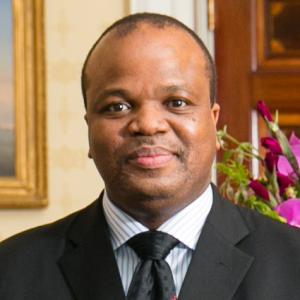Analysis of His Majesty King Mswati III's Speech from the Throne at the official opening of the first session of the 12th Parliament on 9 February 2024
United Nations Eswatini Analysis of His Majesty King Mswati III's Speech from the Throne
Introduction
His Majesty King Mswati III's speech aligns closely with global development frameworks such as Agenda 2030 of the Sustainable Development Goals (SDGs), the Paris Agreement and other global instruments. The speech is also aligned to the Eswatini's National Development Plan for 2023-2028 and the United Nations Sustainable Development Cooperation Framework for 2021-2025.
By aligning the nation's goals with these frameworks, the speech underscores a robust commitment to achieving sustainable development across diverse sectors. This alignment not only signals Eswatini's dedication to international cooperation but also serves as a strategic roadmap for addressing pressing challenges while leveraging global resources and expertise.
Observations on Peace and Security
The speech sets a solid foundation for national development by grounding the vision in the concerns and aspirations of citizens, as evidenced by His Majesty's Esibayeni closing statement urging broader participation. By highlighting the essential roles of both the legislative and executive branches in translating these aspirations into tangible actions, the speech places significant responsibility and accountability on these arms of government.
Moreover, the call for combating corruption with accountability and justice underscores a commitment to transparency and integrity in governance, vital for fostering public trust and sustaining development efforts. The emphasis on peace and prosperity as interlinked concepts reflects a full appreciation that addressing potential core drivers of instability such as unemployment and poor service delivery is central to maintaining peace and prosperity.
This comprehensive approach signifies strong emphasis on substantive measures aimed at addressing the structural drivers of instability.
Observations on Promoting Sustainable and Inclusive Economic Growth (UNSDCF Outcome 1)
His Majesty's acknowledgment of Eswatini's economic resilience and achievements serves to instil confidence in the nation's ability to navigate challenges and capitalize on opportunities. Initiatives outlined in the speech, such as fiscal adjustment plans and infrastructure development, demonstrate a forward-looking approach to enhancing economic growth. Of note is the emphasis on attracting private investments, which underscores a recognition of the pivotal role of the private sector in driving sustainable development. Efforts to support small and medium enterprises (SMEs) and streamline border formalities are indicative of a proactive stance towards creating an enabling environment for business growth and job creation. By prioritizing inclusive growth and youth empowerment, the speech signals a commitment to harnessing the demographic dividend and ensuring that economic prosperity is shared equitably across society.
Observations on Investing in Human Resources and Social Development (UNSDCF Outcome 2)
The speech underscores the importance of investing in human capital as a cornerstone of sustainable development. His Majesty's commitment to quality healthcare and education reflects an understanding of the intrinsic link between human development and economic progress. By highlighting achievements in healthcare and emphasizing the need for universal coverage, the speech signals a commitment to ensuring that all citizens have access to essential services. Moreover, the focus on addressing gender-based violence through cultural change and policy interventions demonstrates a nuanced understanding of the societal dynamics that underpin gender inequality. By prioritizing gender equality as a key pillar of social development, the speech underscores a commitment to promoting inclusive and equitable growth.
Observations on Accountable Governance, Justice, and Human Rights (UNSDCF Outcome 3)
His Majesty's speech reinforces the importance of accountable governance, justice, and human rights as foundational principles of democracy and development. The commendation of successful national elections and efforts to ensure free and fair electoral processes signals a commitment to democratic governance under the Tinkhundla system. Moreover, the commitment to increasing the representation of women and people with disabilities in Parliament reflects a recognition of the importance of inclusive governance in fostering social cohesion and equitable development. By emphasizing the rule of law, accountability, and integrity, the speech sends a strong message about the government's commitment to uphold democratic values and institutions.
While the speech does not mention human rights specifically, it demonstrates a strong focus on socioeconomic rights with its strong focus on service delivery, health, employment, ending GBV, education, etc. It gives guidance on the role of key institutions such as the Anti-Corruption Commission, the Prime Minister's Office, Police, and the Ministry of Justice and Constitutional Affairs. These institutions play pivotal roles in combating corruption, upholding human rights, and ensuring accountability.
Observations on Strengthening Natural Resource Management, Climate Resilience, and Environmental Sustainability: (UNSDCF Outcome 4)
The speech acknowledges the urgent need to address climate change and underscores the importance of environmental sustainability in the context of sustainable development. By highlighting efforts to enhance disaster preparedness and promote renewable energy initiatives, the speech demonstrates a forward-looking approach to climate resilience. The establishment of a Disaster Management Fund and initiatives to reduce reliance on imported energy reflect a commitment to building resilience and mitigating the impact of climate change on vulnerable communities. Moreover, by recognizing the importance of sustainable natural resource management, the speech underscores a commitment to preserving Eswatini's natural heritage for future generations.
Overall, His Majesty's speech reflects a comprehensive and forward-looking approach to addressing key developmental challenges. By aligning national priorities with global development frameworks, the speech underscores a commitment to international cooperation and leveraging global resources to achieve sustainable development. Moreover, by emphasizing inclusive growth, accountable governance, and environmental sustainability, the speech signals a commitment to building a prosperous and resilient future for all Emaswati. An effective resource allocation and robust monitoring framework is however required to drive implementation in the country in 2024.
Analysis by: UN Resident Coordinator’s Office – Eswatini, February 2024
Speech by


















